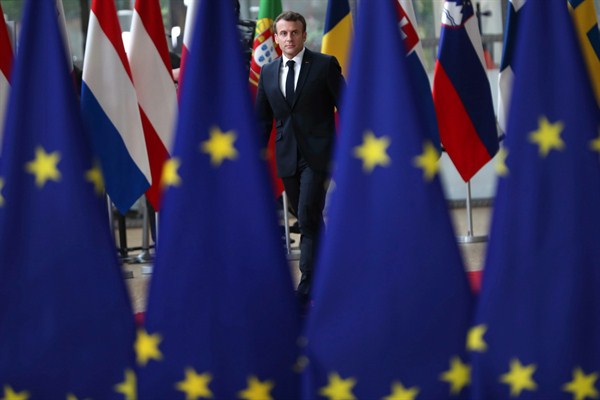While the ostensible purpose of European Parliament elections, which took place this weekend, is to determine the makeup of the European Union’s deliberative body, the results often have implications for domestic politics across the member states. This is certainly the case for French President Emmanuel Macron, who positioned himself prominently in this year’s election campaign. But it’s still unclear exactly what impact the vote will have on the future of European or French politics.
Macron portrayed the vote as a battle between his progressive, reformist vision for the EU and the illiberal, nationalist policies championed by the bloc’s far-right populist parties. It was a risky gamble, since European elections often boil down to a referendum on the popularity of national governments, in which a minority of voters participate. They also by nature favor single-issue parties—it’s no coincidence that the Animalist Party, whose platform focused exclusively on protecting animals’ rights, finished with over 2 percent of Sunday’s vote in France. Given Macron’s recent difficulties due to France’s Yellow Vest movement and the focused euroskeptic brand of his far-right rival, Marine Le Pen, Macron was at a distinct disadvantage from the outset.
Not surprisingly, then, Macron’s Republic on the Move party ended up a close second to Le Pen’s National Rally list. But the outcome is not as clear cut as a simplistic narrative of a Le Pen victory and Macron defeat.

